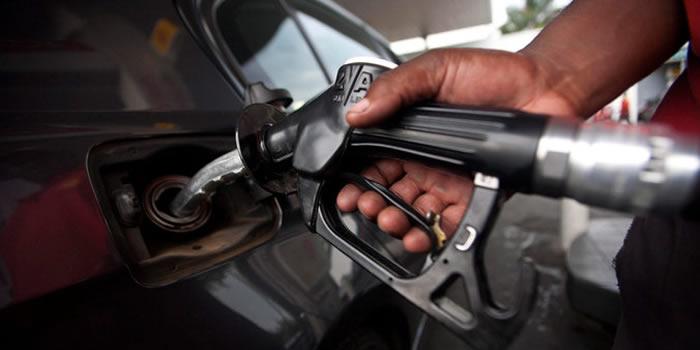News / National
Zimbabwe govt moves to directly procure fuel
9 hrs ago | Views

The Zimbabwean government intends to directly procure fuel for its own use and key economic sectors to lower costs and enhance competitiveness, Energy and Power Development Minister July Moyo has announced.
Speaking at the National Competitiveness Commission (NCC) inaugural competitiveness summit in Bulawayo on Wednesday, Minister Moyo emphasized that the move would ensure a stable supply and affordability of fuel.
Minister Moyo expressed concerns about the competitiveness of the current fuel procurement system, which comprises multiple cost components affecting the final pump price. These include international raw fuel cost (FOB), transportation expenses, exchange rate fluctuations, taxes and levies, blending costs, and distributor margins. The Zimbabwe Energy Regulatory Authority (ZERA) considers these factors when setting retail prices, with global oil prices and exchange rate volatility being the primary drivers of fluctuations. Minister Moyo acknowledged that while external factors are beyond Zimbabwe's control, the government aims to manage internal factors, particularly import duties and transportation costs.
Minister Moyo noted that Zimbabwe's fuel costs at ports of discharge are significantly higher than in regional countries, placing local businesses at a disadvantage. High fuel prices increase production costs, making domestically produced goods less competitive both locally and internationally. He stated that the government's goal is to provide predictable and competitively priced fuel to key economic enablers. He stressed that the government's initiative is not to replace existing fuel importers but to ensure cost-effectiveness and reliability in procurement.
Minister Moyo revealed that both he and Finance Minister Professor Mthuli Ncube had been directed to implement a direct fuel procurement strategy for government use and economic enablers. He stated that the government had been instructed to buy fuel competitively for its use and other economic sectors to avoid the inefficiencies of spot purchases on the international market. While acknowledging the contributions of private traders, he argued that the government should secure fuel in a way that ensures price stability and affordability.
He cited successful fuel procurement models in Mozambique, Zambia, and Tanzania, where governments collaborate with traders to achieve competitive pricing. While these nations have integrated government-trader partnerships, Zimbabwe plans to focus on direct government procurement to lower costs. He emphasized that Zimbabwe should adopt a model where government involvement results in competitive pricing similar to what is observed in these regional counterparts.
The Zimbabwe Energy Regulatory Authority (ZERA) has set maximum fuel prices for February at US$1.58 or ZiG 41.58 per litre for diesel and US$1.53 or ZiG 40.50 per litre for blended petrol (E15). In comparison, Zambia's Energy Regulation Board (ERB) set its February fuel prices at US$1.24 per litre for petrol and US$1.16 per litre for diesel.
Minister Moyo commended existing fuel traders for maintaining a stable supply despite challenges and assured the public that current fuel reserves, including supplies at ports and in pipelines, are sufficient. However, he reiterated that the government's primary focus is on enhancing the competitiveness of fuel procurement to drive down costs and boost the economy.
Speaking at the National Competitiveness Commission (NCC) inaugural competitiveness summit in Bulawayo on Wednesday, Minister Moyo emphasized that the move would ensure a stable supply and affordability of fuel.
Minister Moyo expressed concerns about the competitiveness of the current fuel procurement system, which comprises multiple cost components affecting the final pump price. These include international raw fuel cost (FOB), transportation expenses, exchange rate fluctuations, taxes and levies, blending costs, and distributor margins. The Zimbabwe Energy Regulatory Authority (ZERA) considers these factors when setting retail prices, with global oil prices and exchange rate volatility being the primary drivers of fluctuations. Minister Moyo acknowledged that while external factors are beyond Zimbabwe's control, the government aims to manage internal factors, particularly import duties and transportation costs.
Minister Moyo noted that Zimbabwe's fuel costs at ports of discharge are significantly higher than in regional countries, placing local businesses at a disadvantage. High fuel prices increase production costs, making domestically produced goods less competitive both locally and internationally. He stated that the government's goal is to provide predictable and competitively priced fuel to key economic enablers. He stressed that the government's initiative is not to replace existing fuel importers but to ensure cost-effectiveness and reliability in procurement.
He cited successful fuel procurement models in Mozambique, Zambia, and Tanzania, where governments collaborate with traders to achieve competitive pricing. While these nations have integrated government-trader partnerships, Zimbabwe plans to focus on direct government procurement to lower costs. He emphasized that Zimbabwe should adopt a model where government involvement results in competitive pricing similar to what is observed in these regional counterparts.
The Zimbabwe Energy Regulatory Authority (ZERA) has set maximum fuel prices for February at US$1.58 or ZiG 41.58 per litre for diesel and US$1.53 or ZiG 40.50 per litre for blended petrol (E15). In comparison, Zambia's Energy Regulation Board (ERB) set its February fuel prices at US$1.24 per litre for petrol and US$1.16 per litre for diesel.
Minister Moyo commended existing fuel traders for maintaining a stable supply despite challenges and assured the public that current fuel reserves, including supplies at ports and in pipelines, are sufficient. However, he reiterated that the government's primary focus is on enhancing the competitiveness of fuel procurement to drive down costs and boost the economy.
Source - The Herald























